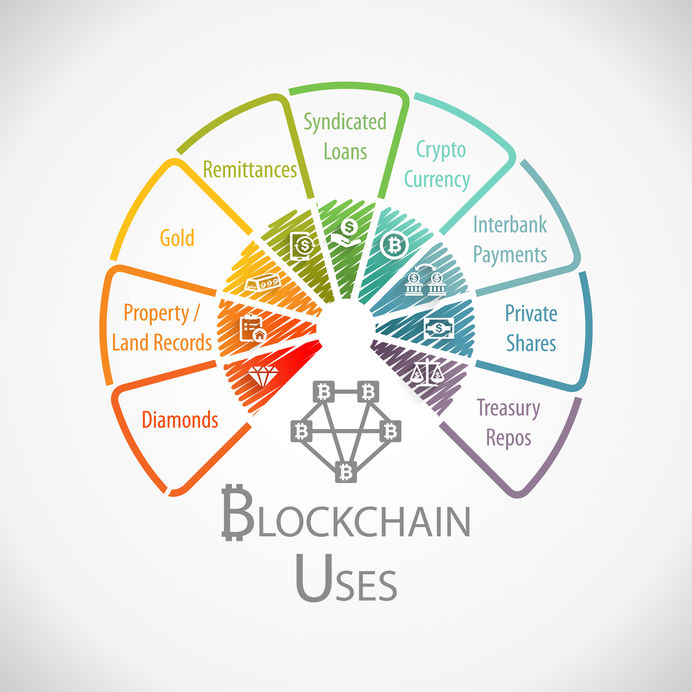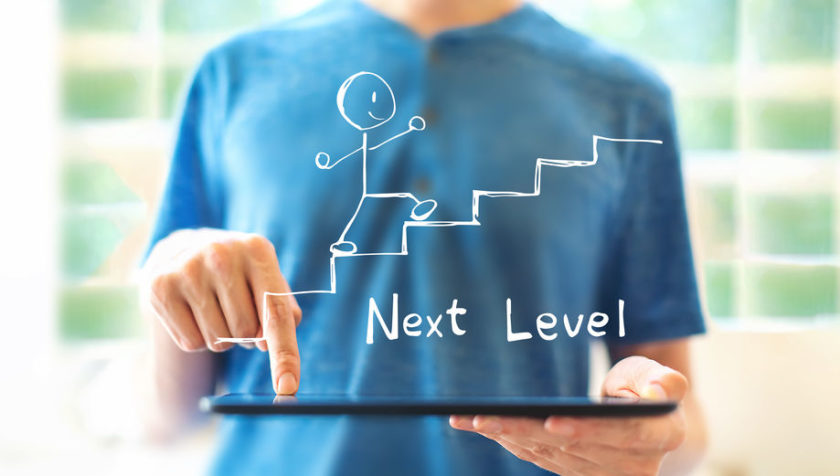While some government officials are still in a wait-and-see mode, others see significant advantages in moving ahead now with what they see as immediate solutions and innovative technology implementations that may pay off in the long run. There are many examples of use cases across countries including: the European Union (EU – anti-counterfeiting), Estonia (Digital Government), US (FDA, DHS, HHS, GSA – security, anti-counterfeiting), China (Payments), India (Payments, Land Registry), Switzerland (Identity), Denmark (Voting), Dubai (Digital Government), Georgia (Land Registry), Gibraltar (Stock Exchange), and many more (Woods, 2018). Besides these countries, Blockchain use cases continue to proliferate throughout the globe, especially in the areas where public sector efficiencies are struggling to cope with the demand for various services.
Blockchain can not only help in improving efficiencies but also prevent fraud, providing a foundation for smooth services and operations spanning through all walks of life. Some of the challenges with most governments are corruption, falsification or destruction of records. In case using Blockchain information can be stored and verified from in an official Blockchain ledger. That will virtually eliminate the need for any (fake or original) document. There is a broad array of applications that are being implemented or explored by governments around the world. Through the implementation of digital identity, everything else can follow. For example, Estonia’s digital identity management systems (Dinis Guarda, 2018), it’s adoption and usage in everyday transactions serves as a foundation of trust and a platform for implementing use cases for Blockchain, some examples are listed below as use cases that seem evident at the outset. Once these are fully implemented and functional, new ideas for implementing other use cases are likely to rise, especially through the convergence of ideas and technologies such as Artificial Intelligence and Internet of Things.
- Government Records (Personal records, Land registration, Corporate registration)
- Providing Attestations based on digital identities and data stored on an official Blockchain ledger
- Managing entitlements and citizen services for healthcare, education, emergency services energy, utilities, infrastructure and other benefits
- Managing Voter IDs and even the voting for transparent elections and easily verifiable counting of votes.
- Government tender processes
- Taxation
- Customs
- Maintaining Personal records: marriage, divorce, death, passport, visa records for countering illegal immigration, fake marriage certificates, fake ID, fake death, marriage and birth certificates or fraudulent life insurance
- Land registration, deeds, property title, vehicle title, vehicle registration for countering fraudulent property claims and selling property belonging to others, fake deeds for property or other asset titles such as vehicles, jewelry, artwork, and acts like driving a vehicle with fake driving license.
- Various public and private entities may use the official Blockchain ledger information to feed and run their processes and systems and develop new data sets that would further enhance capabilities and value-added services.
Some examples across the world where governments are implementing or testing a wide array of use cases with the aim of providing a range of services to their citizens. Some of them are quoted below:
- Andhra Pradesh State in India is using Blockchain for land registration records and vehicle registration. They have also built a large portfolio of Blockchain use cases to improve the efficiency of government and private sector operations(Woods, 2018).
- The most famous Blockchain-based digital government program is e-residency program (e-Residency, n.d.)
- In Switzerland, the city of Zug has used Blockchain-based voting using digital identity based on Blockchain.
- To respond to citizens demand for even faster response and delivery times for government services, the government of Denmark is looking into the use of AI and the Blockchain in digital identity, healthcare, business support and its welfare system(Dinis Guarda, 2018).
- In 2016, Estonian E-health Foundation began a nationwide project to deploy the Blockchain in order to preserve the healthcare records of its entire population to preserve the activity logs and medical notes on medical records of the Estonian population(Dinis Guarda, 2018).
- In September 2018, The Business Transformation and Innovation Division (BTID) of the US Customs and Border Protection (CBP) conducted the North American Free Trade Agreement/Central America Free Trade Agreement (NAFTA/CAFTA) POC, which tested the application of Blockchain technology for the entry summary submission process for NAFTA/CAFTA entries. According to their assessment found that use of the Blockchain achieved almost instantaneous communications between CBP and trade, improved documentation of receipt, and expedited processing for CBP. It eliminated manual documentation requirements and duplicative data entry; captured potential issues early on and other benefits like easier access to documentation, importers and direct communication (US CBP, 2019).
- IBM and Maersk, the Danish shipping company, are collaborating with 90+ partners including customs authorities, port and terminal operators, and others to streamline the global shipping process. Tradelens (https://www.maersk.com/news/articles/2019/07/02/hapag-lloyd-and-ocean-network-express-join-tradelens, n.d.) makes key information needed for customs officials available in real-time reducing overhead, shipping time, and administrative costs. Key government groups participating includecustoms authorities from Singapore, Australia, Saudi Arabia, Peru, The Netherlands, Belgium, and the US. Today after having completed over 150 million shipping activities, the Blockchain-enabled project has reported average savings of 40% versus legacy systems (Woods, 2018).
- In 2018, with the mission is to guarantee and protect property rights in England and Wales, as mentioned by Graham Farrant, Chief Executive of HM Land Registry, “the ambition to become the world’s leading land registry for speed, ease of use and an open approach to data requires HM Land Registry to be at the forefront of global innovation in land registration” The UK’s national land registry partnered with leading digital transformation partner for the UK public sector, to develop a platform to store land registration information and streamline the process for buying or selling properties (HM Land Registry, 2018).
- According to a patent filed (United States Postal Service, n.d.) by the US Postal Service, is developing a Blockchain-based registry for authenticating user information.
References:
Dinis Guarda (2018) ‘How Governments in Sweden, Denmark and Estonia Are Adopting Blockchain and AI’, [Online]. Available at https://www.intelligenthq.com/how-governments-are-adopting-blockchain-and-ai-in-advanced-economies-part-2/ (Accessed 3 July 2019).
e-Residency (n.d.) What is e-Residency | How to Start an EU Company Online [Online]. Available at https://e-resident.gov.ee/ (Accessed 2 July 2019).
HM Land Registry (2018) HM Land Registry to explore the benefits of blockchain [Online]. Available at https://www.gov.uk/government/news/hm-land-registry-to-explore-the-benefits-of-blockchain (Accessed 3 July 2019).
https://www.maersk.com/news/articles/2019/07/02/hapag-lloyd-and-ocean-network-express-join-tradelens (n.d.) TradeLens blockchain-enabled digital shipping platform continues expansion with addition of major ocean carriers Hapag-Lloyd and Ocean Network Express [Online]. (Accessed 3 July 2019).
United States Postal Service (n.d.) ‘METHODS AND SYSTEMS FOR A DIGITAL TRUST ARCHITECTURE’, Wshington DC [Online]. Available at http://appft.uspto.gov/netacgi/nph-Parser?Sect1=PTO2&Sect2=HITOFF&u=%2Fnetahtml%2FPTO%2Fsearch-adv.html&r=1&p=1&f=G&l=50&d=PG01&S1=20180083771.PGNR.&OS=dn/20180083771&RS=DN/20180083771 (Accessed 3 July 2019).
US CBP (2019) What’s New in Innovation | U.S. Customs and Border Protection [Online]. Available at https://www.cbp.gov/trade/ace/whats-new-innovation (Accessed 3 July 2019).
Woods, J. (2018a) Blockchain: Public Sector Use Cases – CryptoOracle [Online]. Available at https://medium.com/crypto-oracle/blockchain-public-sector-use-cases-49a2d74ad946 (Accessed 11 July 2019).
Woods, J. (2018b) ‘Blockchain: Public Sector Use Cases’, CryptoOracle [Online]. Available at https://medium.com/crypto-oracle/blockchain-public-sector-use-cases-49a2d74ad946 (Accessed 2 July 2019).
Also read:
Blockchain Technology Expected to Grow 66.4% in next 5 Years According to MRFR Research Findings





